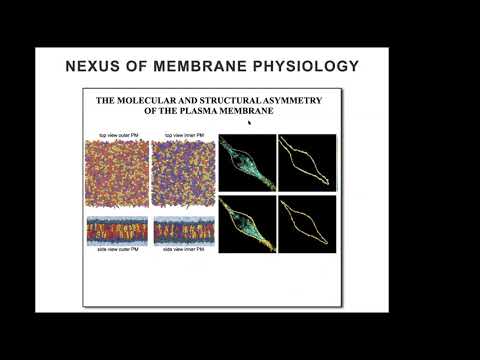I mean that for most dietary items or supplements, there is no easily measured biomarker that will tell you whether it is improving or making your health worse. As an example, lets say Lustgarten were to take rapamycin and wanted to track whether it’s improving his health. The main desirable effect of rapamycin is increased autophagy and slowdown of aging. There is no blood test that will tell you whether it’s increasing autophagy or slowing down your aging. Lets take arginine as another example. Some people take the amino acid arginine and one of many reasons to do so is that it is used for synthesis of NO, which in turn is beneficial for the vasculature over the long term (NO production declines with age). There is no blood test that will tell you whether the arginine you ingest is increasing your NO significantly. If it was working it could show as a tiny non-significant reduction in blood pressure or as improved vascular flexibility many years down the line. These effects are not detectable with common blood tests. Truth is most of the blood tests really just give you some clues about the average effect that is occurring from the interventions. They rarely give you enough information to conclude that something is likely working or not working, unless they directly measure the target of the intervention like measuring LDL to determine whether a statin drug is working.
Yes, it is useful to use all-cause mortality data, and I do it too when analyzing my blood tests. However one must be aware of the limitations of this method. In many cases, blood test parameters are associated with mortality because of reverse causality. As an example, having very low muscle mass is associated with mortality, but that’s not necessarily because low muscle mass increases mortality. I think it’s more due to the fact that aging causes sarcopenia so the low muscle mass is more a result of rather than a cause of aging. Therefore, if you increase your muscle mass, you might not be improving or reversing your aging much, you might just as well be hiding the problem. An 80 year old frail man that starts using anabolic steroids to gain some muscle may appear healthier a year later but I would argue he is not healthier at all, except for in the narrow measure of muscle strength. Yet if you were to track his muscle mass and BMI you could wrongly conclude that his increased muscle mass and BMI is a sign that he has lower risk of mortality and has improved his health.
It’s a bit more tricky than that. It’s very hard to be certain of causality in most cases. Even if he were to do several tests with or without some intervention and would see a clear relationship between an intervention and some parameter, that still doesn’t necessarily imply causality. If we take the strawberry intake as an example, if it is correlated with X the strawberry intake might as well be correlated to something else that is correlated to both X and to strawberry intake. Unless you have a reasonable likely biochemical mechanisms by which strawberries could influence X then you don’t have a good basis for thinking the strawberries caused X at least not directly. One example here is that Lustgarten used to find correlation between his beta-carotene intake and his albumin level. His conclusion was that increased consumption of beta-carotene or carrots somehow caused the increase in albumin levels and that this was beneficial because lower albumin is associated with increased mortality. Now if there was a known mechanism by which beta-carotene influences albumin, this might be reasonable. But I have never heard of such a mechanism and Lustgarten didn’t mention any such mechanism either. Therefore it’s a stretch that it’s increasing albumin. There are so many other reasons that might explain this. Hell the beta-carotene, or something in the carrots, might even be interfering with the albumin blood test, giving falsely elevated test results. Another example, imagine someone that uses creatinine to estimate his kidney function. He changes something in his diet and supplement regimen and sees his creatinine drop a bit and thinks that whatever it is he did improved his kidney function. But that is just one of many possibilities. Slight dehydration can elevate creatinine a bit so anything that increases your hydration level at the time of the blood test could reduce your creatinine level giving you the impression that your kidney function has improved, while it didn’t improve at all.
The major problem with all this tracking is not only that the biomarkers don’t usually track the most important parameters, it’s the fact that even in cases where they do, the changes wouldn’t become apparent until after many years. As an example, kidney function declines very gradually with age and usually creatinine levels don’t start to decline much until a threshold is reached and significant decline in function has appeared. This means that your kidney function could go from 90% to 80% gradually without any change in creatinine. Any changes in creatinine that you see in the short term, like within months, are most likely not reflective of any changes in kidney health or function but a reflection of short term regulation. For a lot of important parameters the short term variation and within test variation is far larger than the gradual age-related change seen over several years making most short term fluctuations meaningless.
These are some of the reasons I base my longevity regimen mostly on reading the literature and estimating what is good or not. Blood tests and tracking has a minor role in determining what I do and I mainly interpret blood tests within the context of known biochemical effects of interventions.
